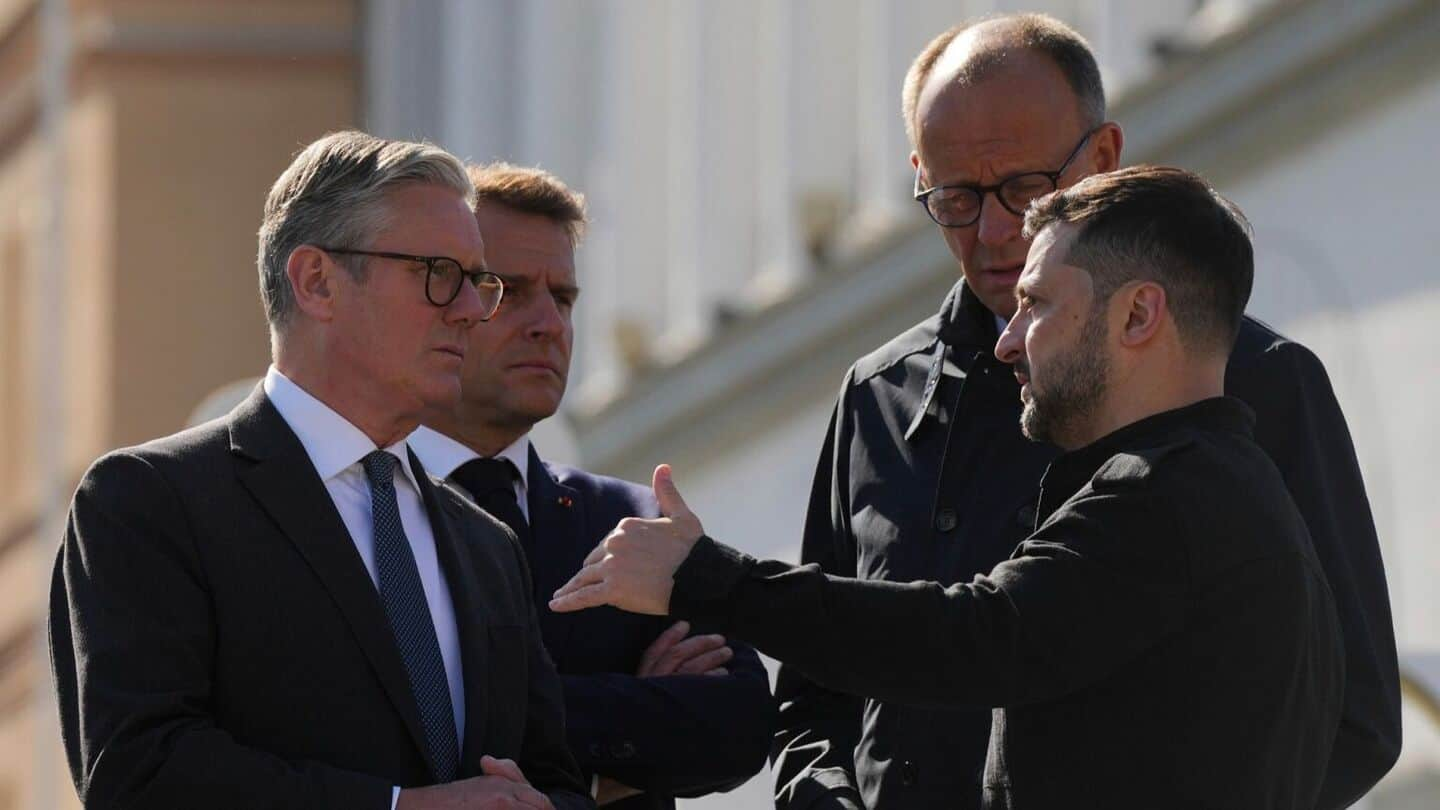
Germany, Ukrainian allies lift restrictions on Kyiv firing long-range missiles
What's the story
Germany and its allies have lifted restrictions on Ukraine's use of long-range missiles for the first time. "There are no longer any range restrictions on weapons supplied to Ukraine," German Chancellor Friedrich Merz said, adding that this includes support from Britain, France, and the United States. The move comes after Russia launched record drone attacks against Ukraine over the weekend. However, Merz did not clarify whether Germany will supply Kyiv with its powerful long-range Taurus missiles.
Historical context
US's previous hesitance, Russia's threats
Just last week, Merz said he preferred the approach of "strategic ambiguity." But now he justified the change in policy, claiming that only by eliminating the range constraints would Ukraine be able to defend itself. "We call it in the jargon long-range fire, which is to say to equip Ukraine with weapons with which it can strike at military goals beyond its borders," Merz said.
Diplomatic developments
Ukraine's President to visit Berlin amid escalating tensions
Ukrainian President Volodymyr Zelenskyy is expected to visit Berlin on Wednesday, where he will meet with Merz and German President Frank-Walter Steinmeier. The visit comes after Russia's weekend attacks killed over two dozen people in Ukraine. Following the attack, Zelenskyy has called for stronger pressure on Russia from Western allies to end the conflict. US President Donald Trump also expressed frustration with Putin, calling him "absolutely crazy" and considering more sanctions against Russia.
Domestic concerns
Kremlin responds to lift
The US had previously been hesitant to provide long-range missiles to Ukraine. It wasn't until November last year that former President Joe Biden approved the use of Army Tactical Missile Systems (ATACMS) inside Russia. The Kremlin has responded to the lift, describing the decision as "dangerous" and detrimental to reaching any sort of peace agreement. "If these decisions have indeed been made, they are completely at odds with our aspirations for a political settlement," Kremlin spokesperson Dmitry Peskov said.